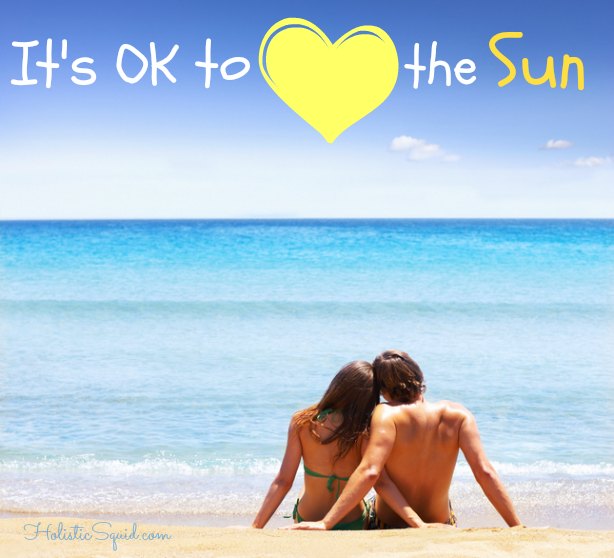
I was all geared up to write you a post about the health benefits of sun exposure and the problems with sunscreens, when my friend Heather over at Mommypotamus came out with a wonderful six part series on that very topic. Heather has done a brilliant job exploring a surprisingly controversial topic, and I couldn't have said it better myself – so I won't. Instead, here's a recap of what she shared – with a few thoughts of my own thrown in for good measure.
“Sunshine = Happiness“
From the depths of a Pennsylvania winter to the annual June Gloom in California, I can attest that this is true. Without sun, life is frankly less sunny.
Sunlight increases serotonin levels in the body, signaling daytime and lifting the mood. Sunshine also stimulates vitamin D production which helps the body to maintain serotonin levels. In fact, the sunshine vitamin has been specifically shown to help treat depression. So how can something so good be so bad?
Just about everyone needs more vitamin D
Vitamin D has been linked to healthy bones, teeth, and overall health, and “70 percent of U.S. children have low levels of vitamin D” according to one researcher. You can read more about why vitamin D is so important here.
Because of the fear of cancer, pre-mature aging, and other skin damage, health-conscious folks avoid rays on their skin by abstaining from sunbathing and/or wearing sun block and protective clothing. For those who do get sun exposure, frequent showering and bathing (not a practice of our ancestors) may also remove the natural oils from the skin which assist in the production of vitamin D (source). Finally, the current USDA recommendations for oral vitamin D are far below what is needed to maintain optimal blood levels, so taking an oral supplement along these guidelines is not likely to be sufficient. Whether from sun or from supplement, most folks are simply not getting enough.
Sunshine is the best way to get your vitamin D
According to Dr. Stephanie Seneff, a senior scientist at MIT, vitamin D from sun exposure and vitamin D from food sources and supplements perform very differently in the body. When sun rays hit the skin, the body makes vitamin D3 sulfate which is water soluble and can travel freely in the blood stream. Seneff explains that D3 sulphate contributes to strong immunity and healthy cardiovascular and nervous systems. It can also be converted to unsulfated vitamin D3 which helps with calcium distribution in the body. Vitamin D3 supplements are unsulfated, fat soluble, and needs LDL cholesterol for transport. Unsulfated vitamin D3 does not convert into the sulfated form, and as such, Dr. Seneff believes that oral vitamin D supplements are a poor substitute for vitamin D from sunshine.
This said, for those who must avoid the sun or those who live in cold, dark climes, vitamin D supplementation is still a must. You can read more about how to get vitamin D in the winter here.
From personal and professional experience, I am not convinced that vitamin D from supplements doesn't aid in immune health and mood support even if the research says it is so. I've experienced and seen many individuals fight colds and flu simply by adding vitamin D3 drops and/or fermented cod liver oil. I've also seen folks suffering from depression and hormone imbalance improve with oral vitamin D. While a healthy dose of sunlight is optimal, oral vitamin D should not be dismissed when sunshine is simply not a viable option or one's serum vitamin D is significantly low.
“Sunlight prevents cancer“
Yes, you read this correctly, and before you dismiss this as nonsense, consider that it does not say that sunburn prevents cancer.
Moderate sunlight on human skin is not evil – but indeed the opposite. Whether your skin is fair or dark, or you live near or far from the equator, human beings are a living species born on a planet that revolves around the sun. We were not designed with thick scales or nocturnal habits. Exposure to sunlight is part of our design, necessary for healthy cell production and proper function of our immune system – down to the prevention of cancer – including melanoma. (Links to the research backing these claims can be found here).
If sunlight is ‘good' what causes cancer?
Overexposure to sunlight and sunburns? Perhaps. Excessive sunlight blocked by toxic sunscreens? Also likely. Excessive sunlight plus a diet providing inadequate protective nutrients? Yes. Which brings us to the idea that…
“Antioxidants play a bigger role in cancer prevention than sunscreen“
This is not to say that you should eat an orange and go flit about the beach at high noon in your skivvies. Your overall diet will determine how well you will be able to handle sun exposure, and the best diet is one rich in omega-3 fats, antioxidants, and good fats from good sources (pastured eggs, grass fed meat and dairy, coconut oil, and seafood). Mommypotamus offers a nice starting point for antioxidant rich foods, and if you're new to the world of eating nutrient dense food, here a snapshot of what it looks like.
I am looking forward to loading up my (very white) kids with antioxidants and healthy fats (atop their already healthy diets) to test this theory out this summer. Don't tell my very white, British husband that his brown wife is trying this, though. He will have them slathered in Badger sun cream before you can say ‘golden brown'.
“Even ‘healthy' sunscreens can accelerate skin aging“
I have ranted about sunscreens in the past – and the discussion really comes down to this:
Conventional sunscreens are hands-down bad. No ifs, ands, or buts about it – it's a toss up between whether your spray-on sunblock or a sunburn is worse for your body, but I'd put my money on the Coppertone killing your first.
But what about natural sunscreens? Nano-particles, which make the sunscreen go on without the chalky white appearance, can be found in most natural sunscreens – not good. And did you know that most sunscreens only block out 4% of the suns rays? The blocked rays are the UVA/UVB rays that reduce the likelihood of sunburn. So, essentially, you can hang out in the sun for way longer than is ideal for your body, but thanks to the function of sunblock, you may not think to head for the shade until you've gotten too much exposure.
So, what's a health-conscious sun lover to do?
- By all means, get some sun!
- Ease into it, avoiding sunburn, gently building a tan through the sunny seasons, and heading for shade when you feel you've had enough.
- Eat a nutrient-dense diet year round – high in anti-oxidants and healthy fats.
- Wear sun protective hats and clothing if you plan to be out for long periods of time.
- Choose natural sunscreen by visiting the Environmental Working Group's list of the best available. My family loves Badger. OR
- Make your own safe and effective sunscreen with this simple recipe.
- When the sun is not shining for a long period of time, be sure to load up on vitamin D rich foods as an insurance plan.
- Not so sure? Read Mommypotamus's entertaining and informative series on the topic of sun and health here for a more detailed discussion and links to lots of convincing research.
Are you ready to get some more sun, or still iffy and concerned about risks? Tell me about it below…



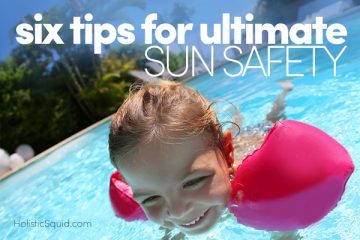

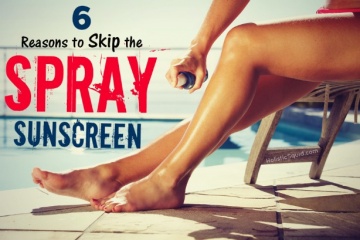
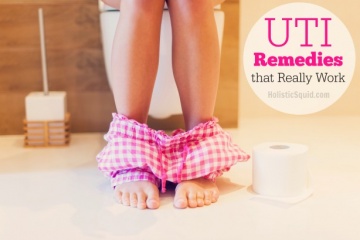

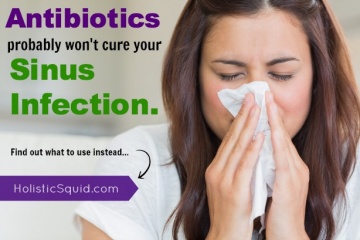
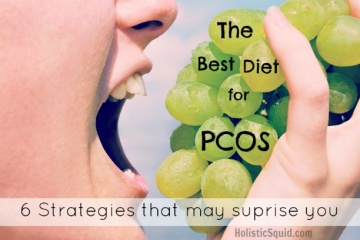
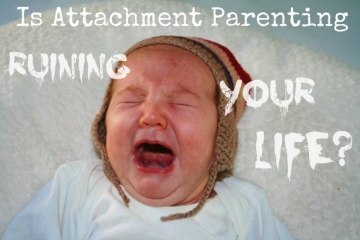
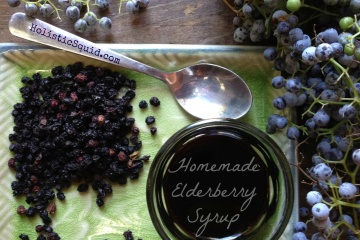
Love this post! Thanks, Emily!
What a cute chick!
By the way, that’s my mama in the photo. Isn’t she pretty?
Great post!! Staying away from vegetable oils and eating lots of good, saturated fats has made the biggest difference for me when it comes to burning in the sun.
We eat a diet very high in fat. For the six of us, we eat about 15 pounds a butter a month, 25 pounds of cheese, coconut oil, etc. (By the way, none of my family is pudgy either.) We use to burn easily, but in the last eight years, we never have used sunscreen and we do not burn. We have spent whole days on the lake where we are red at the end of the day, but by the next day the red is gone and we were tanning our very white bodies.
I’ve just followed this concept, I live in New Zealand which has just finished summer. Clear skies and air skin means I usually hide inside or else risk painful burns, as I hate smothering myself in chemicals. This summer, I tried to go outside with my wee baby about 10 mins a day, au natural, then if out for up to half an hour I’d rub coconut oi in to us, longer than that, i’d use jojoba oil. And am eating lots of natural fats etc. One day I ended up outside visiting friends outside in the fierce sun all morning. I thought there’d be shade but there wasn’t. Baby was in a carrier and draped in a cloth. I’d had one application of jojoba oil. I thought I’d burn badly, but even tho my skin was red later that day, it wasn’t hot or painful, and the next day had gone away. Hooray! Not that I made a habit of that, the sun is fierce down here!
Hi Sandy – well done! Thanks for sharing : )
Coconut oil has been used by islanders for years and years to protect skin from sun. I believe there is not enough science yet as to taking additional D supplements. Trevor Marshall (expat Aussie researchers) believes additional D in food and sunlight exposure can ramp up inflammation in certain people. I’m certainly one of those people. I needed to severely reduce my 25D and 1,25D levels which has allowed me to regain improved health. Trevor Marshall believes that all auto immune disease is caused by inflammation caused by stealth infections. His research has helped me heaps
I have noticed this phenomenon in my own life, but didn’t know what to attribute it to. Thanks for the info. Prior to changing up my diet, I hid from the sun. Now I haven’t had a burn in 2 years. We even went to snorkeling in the Caribbean!
I love the sun! I worry about all those years I was slathered with sunscreen…
Hi Emily,
I just wondered what other natural sunscreens you would recommend other than the Badger one as I’ve been searching for it but believe it’s been discontinued in the UK 🙁
Thanks!
Hi Laura – Thanks for your question. After learning how easy it is to make, I’ve been making my own water resistant sunscreen: http://holisticsquid.com/homemade-sunscreen/
Also, from my personal experience, not getting dehydrated makes you less likely to sunburn.
Emily, what about the sunscreen in mineral makeup? Good/bad/indifferent?